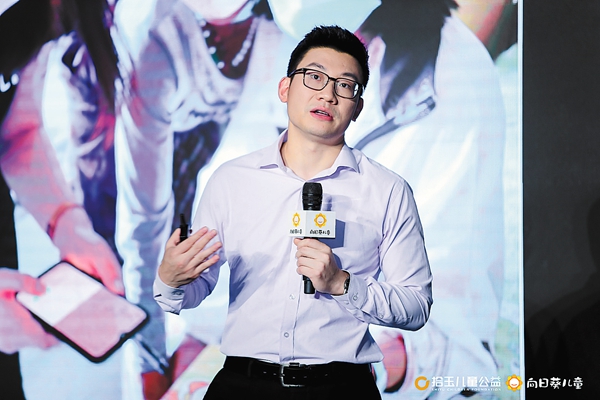A story worth telling


Knowledge brings hope
Li Zhizhong, founder of Shiyu Children foundation, echoes that China's sample size of children with cancer is large enough for pediatric cancer research, which will be a boon to pediatric oncology experts, because a major barrier to large-scale discovery and advancement in treatment of pediatric cancers is a lack of data and samples for study.
"Why our research in pediatric cancers is quite limited is that there is not enough communication between scientists, doctors and policymakers," Li Zhizhong says, adding that Shiyu Children Foundation hopes to be built into such a platform for dialogue and cooperation-either to meet clinical demand or to conduct high-quality research on childhood cancers-to serve the children with cancer.
It is also the main reason behind him quitting his job at Novartis Pharmaceuticals in the United States in 2018 to establish the foundation and advance China's diagnosis and treatment level on pediatric cancers. The foundation has so far attracted more than 17,000 volunteers from home and abroad.
In 2020, the foundation cooperated with search engine Baidu to provide scientific information on 25 entries related to pediatric cancers. To cater to popular trends on social media platforms, it has also created short videos on related topics with Youlai Doctor, an online health consulting service that connects patients with specialist doctors.
On various occasions, Li Zhizhong has reiterated that cancer in children is very different from cancer in adults, involving different cancer types and occurring much less frequently.
Cancer is a leading cause of death for children, with at least 300,000 new cases diagnosed each year among children from birth to 19 years old, World Health Organization estimates. However in developed countries like the US, because of major treatment advances in recent decades, 84 percent of children with cancer now survive five years or more, compared with about 58 percent in the mid-1970s, according to the American Cancer Society. It indicates that diagnosis and treatment advances in pediatric cancers make a difference to survival rates.
"With a new drug or therapy development, it may bring a revolutionary change for children with cancer," Li Zhizhong says, while urging parents of affected children not to give up.




































